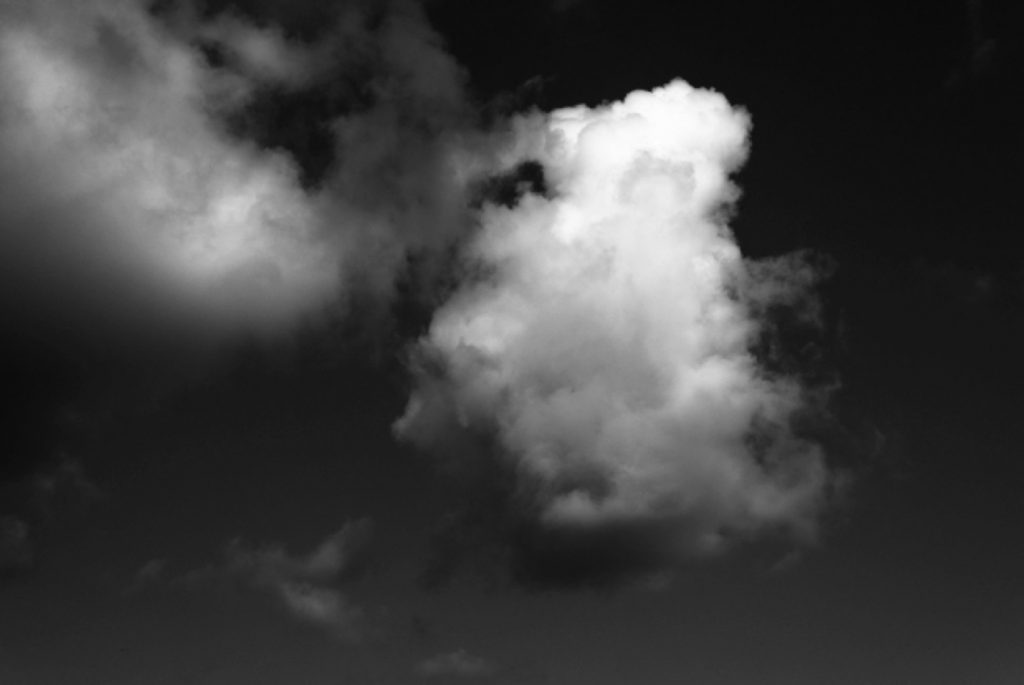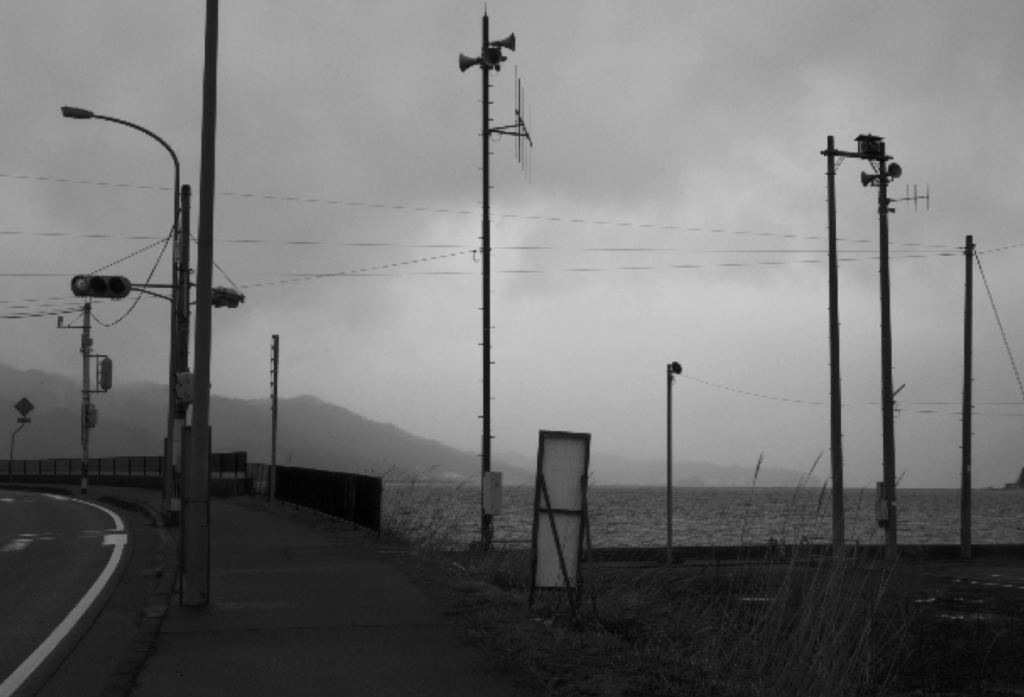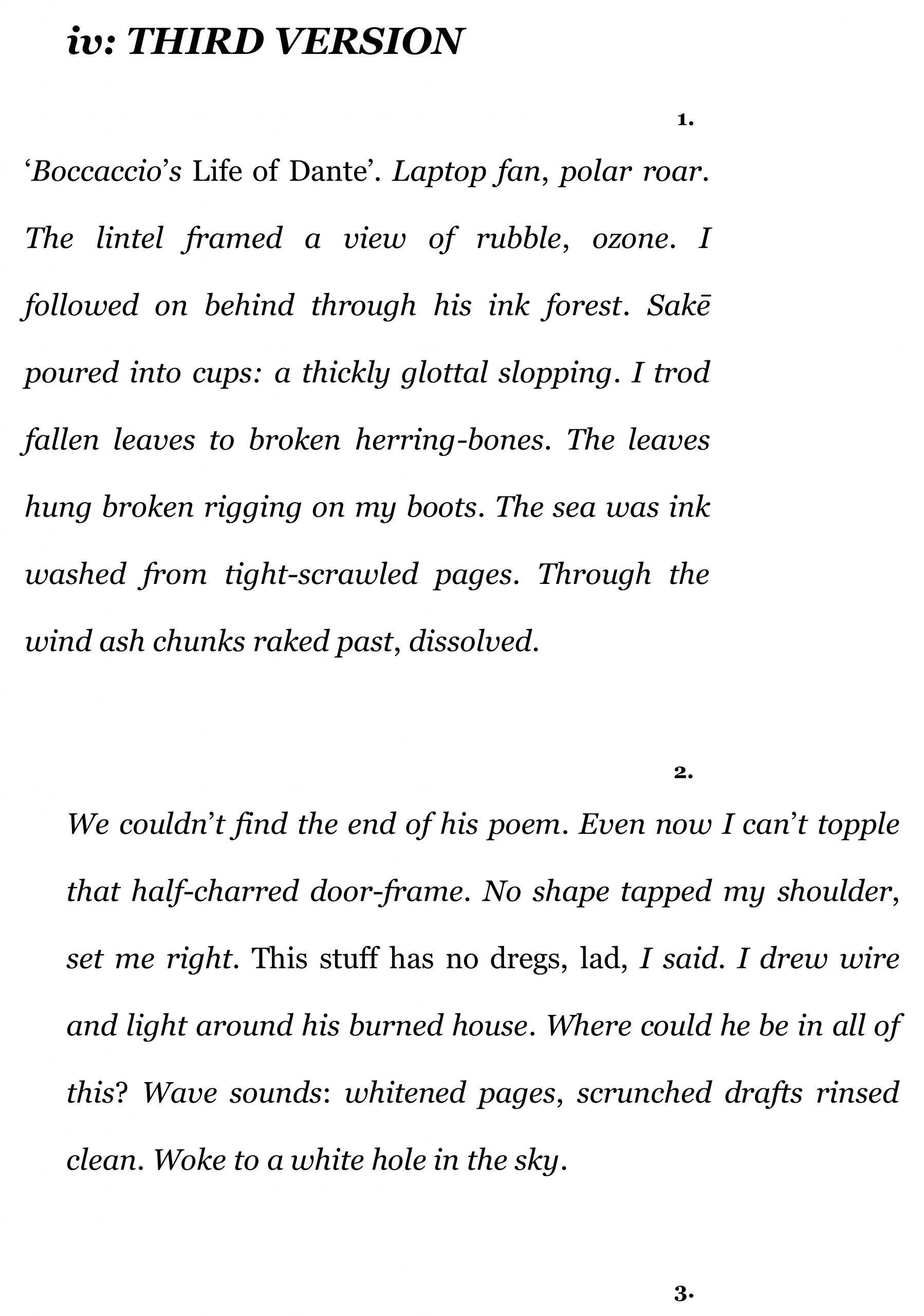
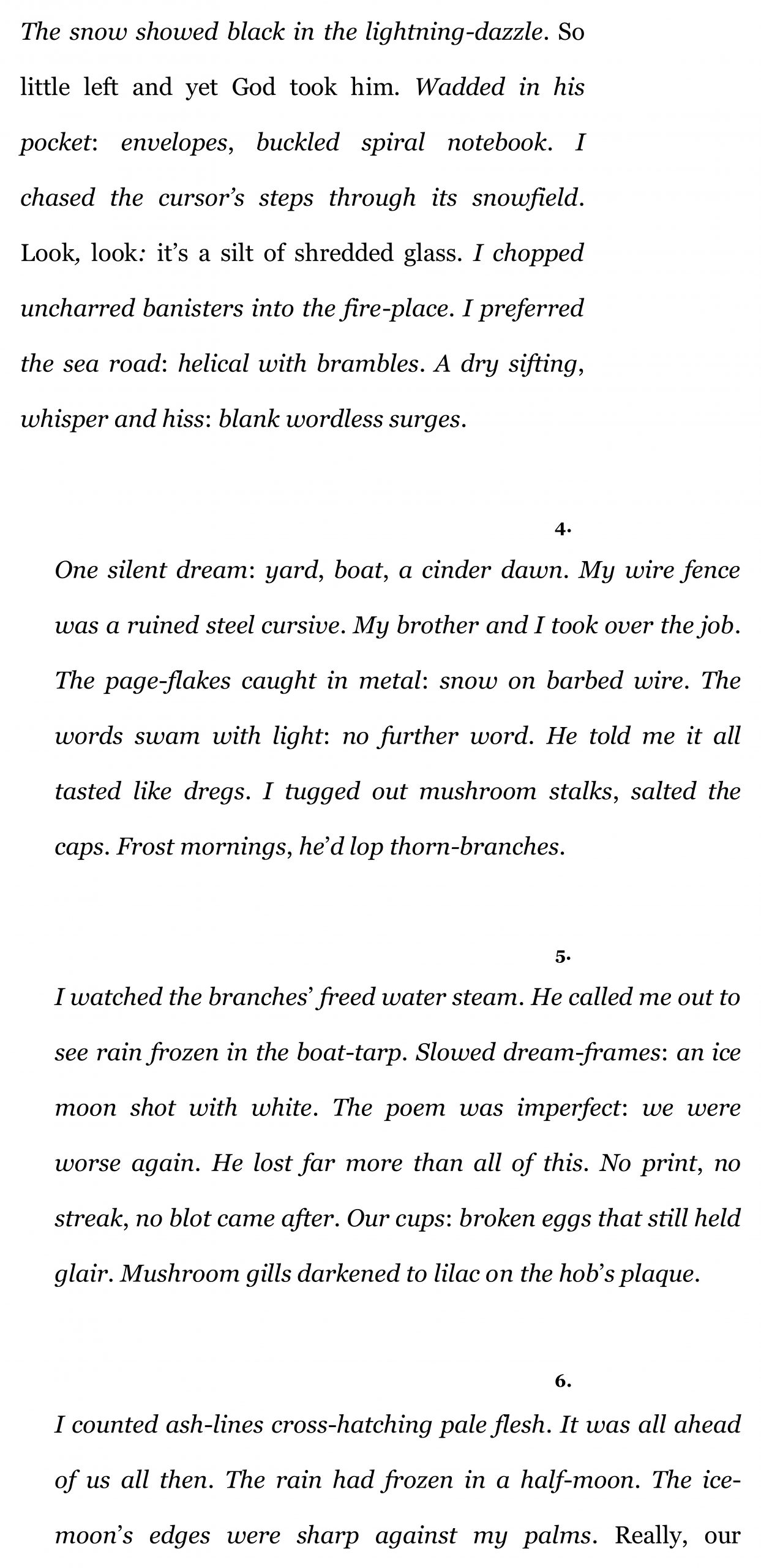
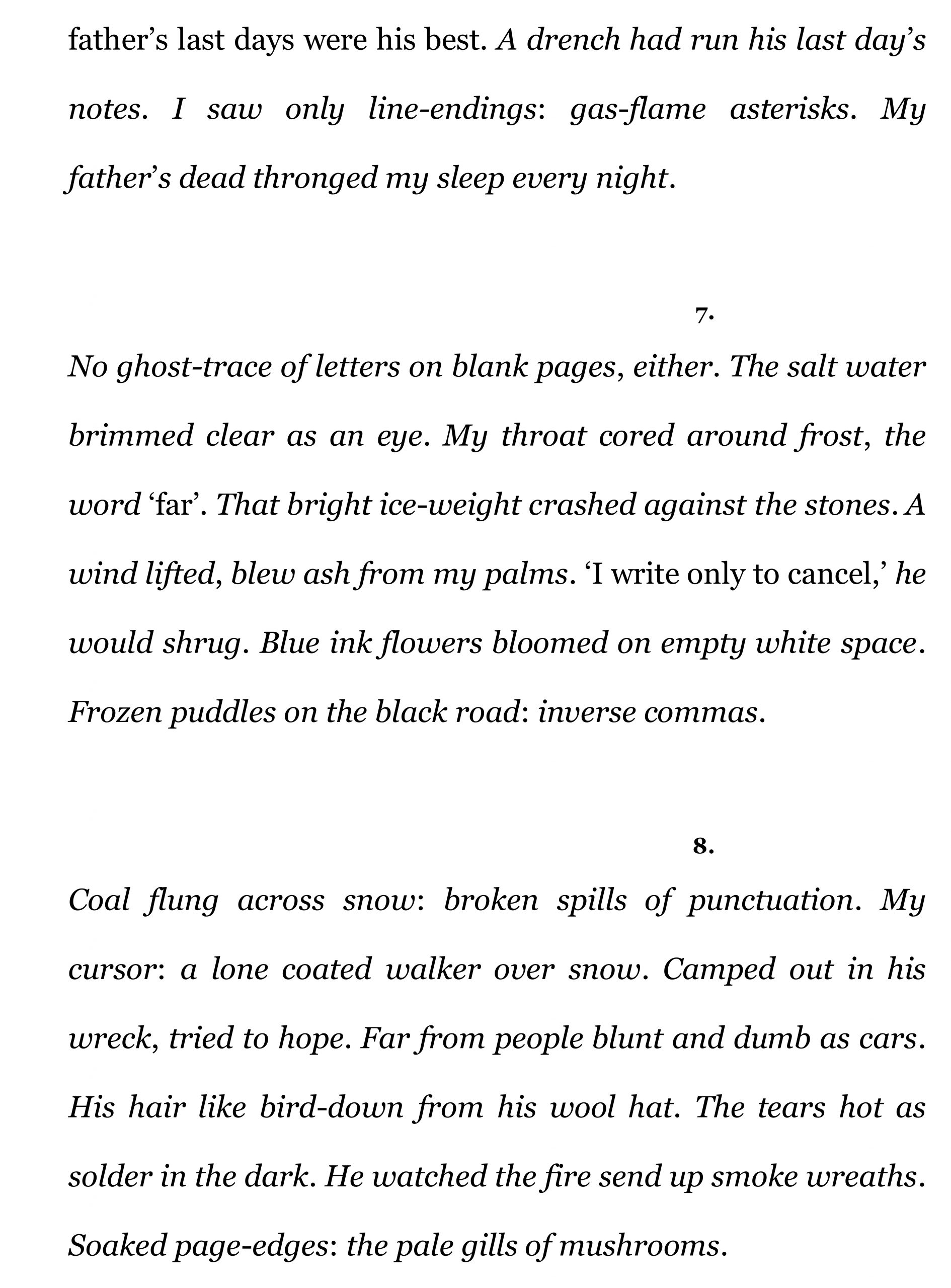
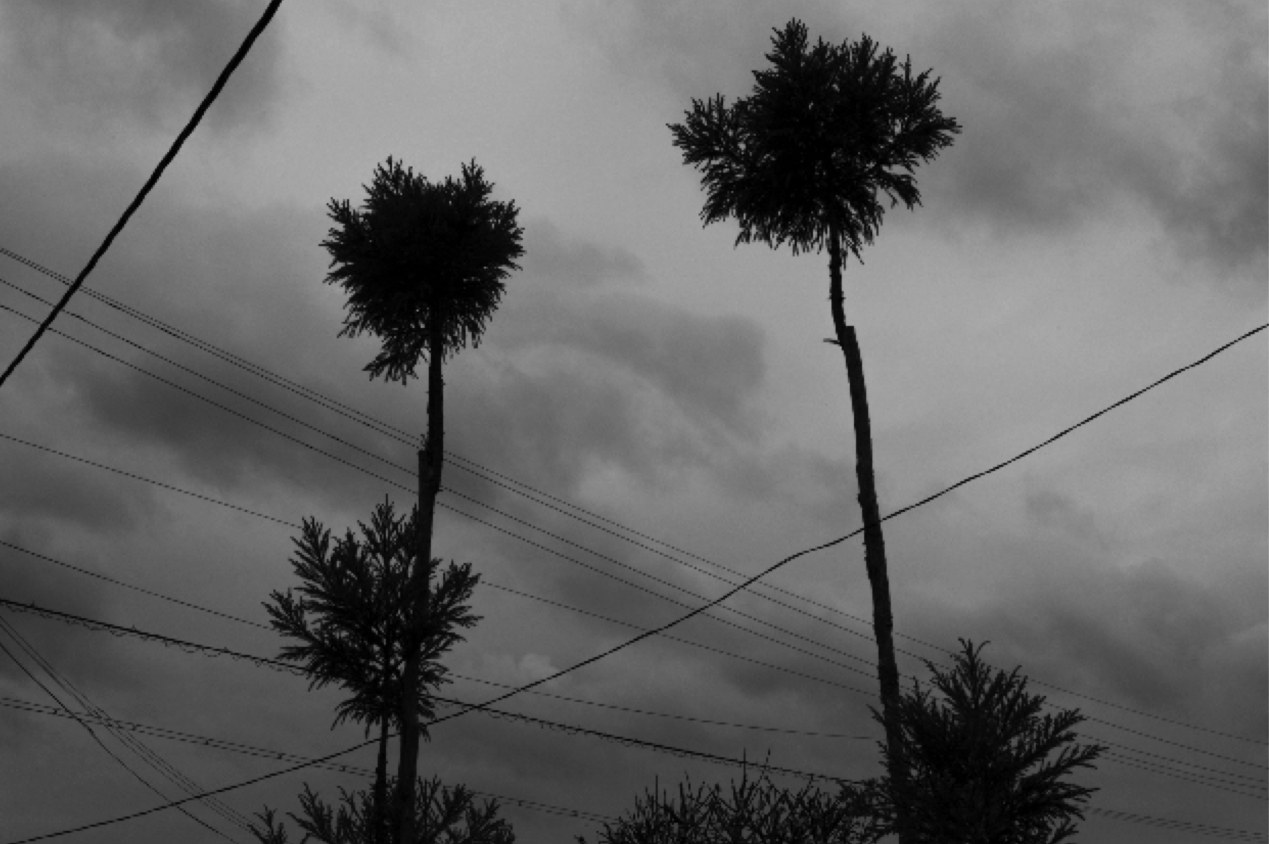
This version happened because where I live now, there’s no fog: just particles of air-pollution, car-exhaust, scorched proteins from the taco-stands. The rain brings a sea-spray effect, certainly, but for the most part I’m living in a parodic, overheated version of the landscape I tried to conjure up. What’s worse, instead of the fluid onward motion of a walker or a cursor it’s almost impossible to walk here, with the pavements obstructed by badly parked cars, by construction sites, by the warning barriers which cordon off those buildings left half-collapsed after the last major quake. When I get lost to the iambic tick of my own shoes against the pavement I’ll sometimes find myself arriving at an isthmus of concrete where the pavement has been thinned by new lanes of traffic. One fantasy does arrive at such times: that of a writing which is so fragmentary, so pre–broken as to resist all further catastrophe, like ex-voto prayers inked on ceramic tiles, the blotted ‘O’s and ‘K’s gleaming like beads of black wax. For the most part, though, these are the very worst hours of the day, when it’s probably most useful to burn papers in the garden, loving how fog-white the smoke is as it tapers towards the police helicopters and the siren-wauls and the blat, blat, blat of scooters.
*
Another way to pick the lock of a draft and get back out to hunt ‘the otherness in language’, as Mathews puts it, comes from an algorithm invented by Mathews himself, and for which he made the grand claim that this simple formula rearrange ‘all that can be manipulated in its material or symbolic form’, from the interiors of words, to full sentences, ‘not to mention amoebas, atoms, and quarks’ and be applied ‘to entire literatures, to civilisations, to planetary and solar systems, to galaxies’, renewing the world of the text at a molecular level.
According to Mathews’s procedure — as Warren F. Motte Jr. explains, in his primer on Oulipo — at least two sets of heterogeneous elements are required. At least two elements must differ, or else the machine will simply ‘photocopy’ the original sets, but, at the same time, each element in the set must have a function consistent with its corresponding elements in the other sets, whether a grammatical function, a list of nouns, or a category of narrative language (exposition, dialogue, ‘internality’, narration, description, etc.). These sets and elements are superimposed one above the other to form a table consisting of rows (the sets) and columns (the corresponding elements):
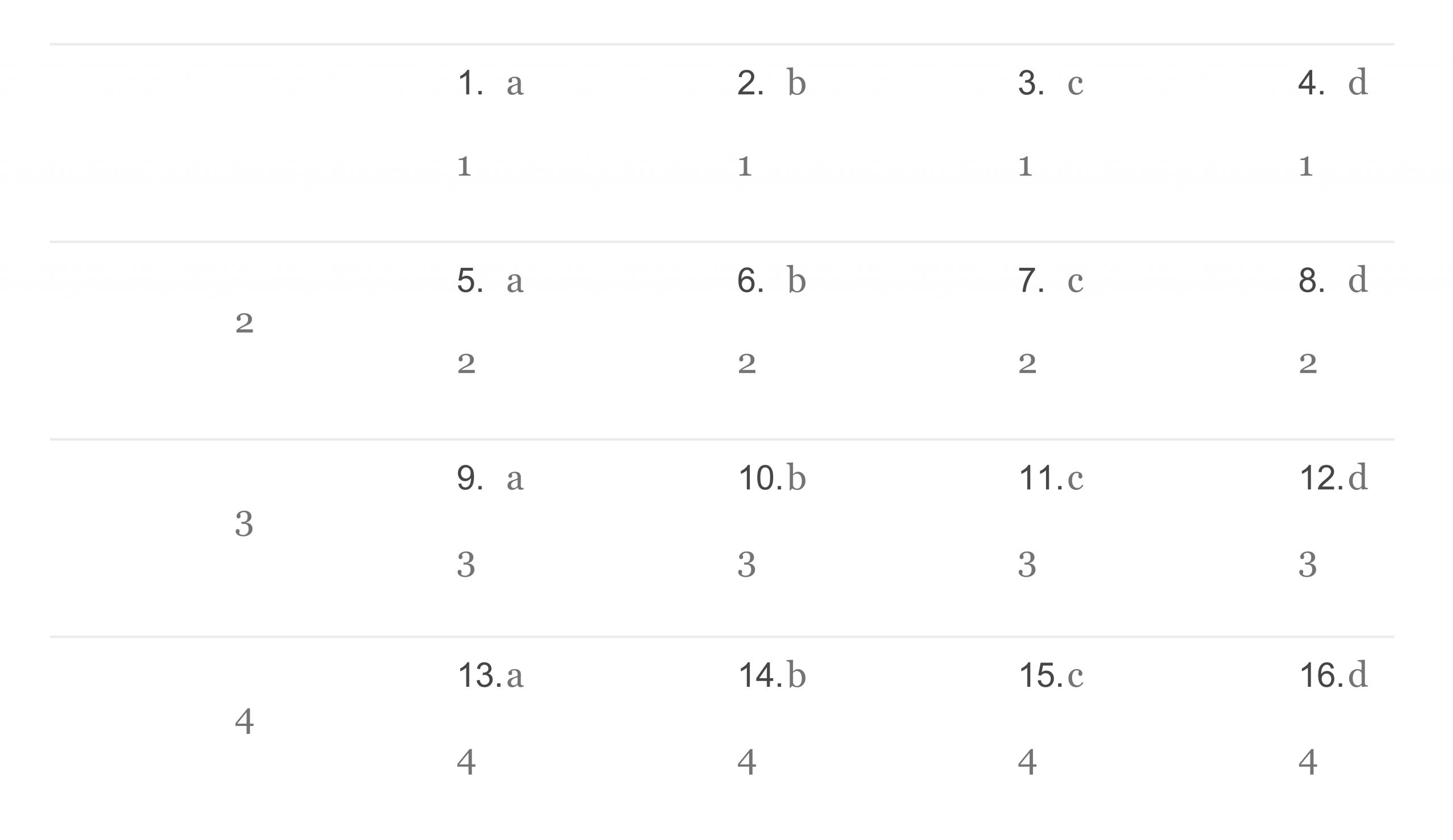
The transformation comes about by shifting each set n – 1 places left: in other words, shift the second set one place left, the third two places left, the fourth three, and so on:
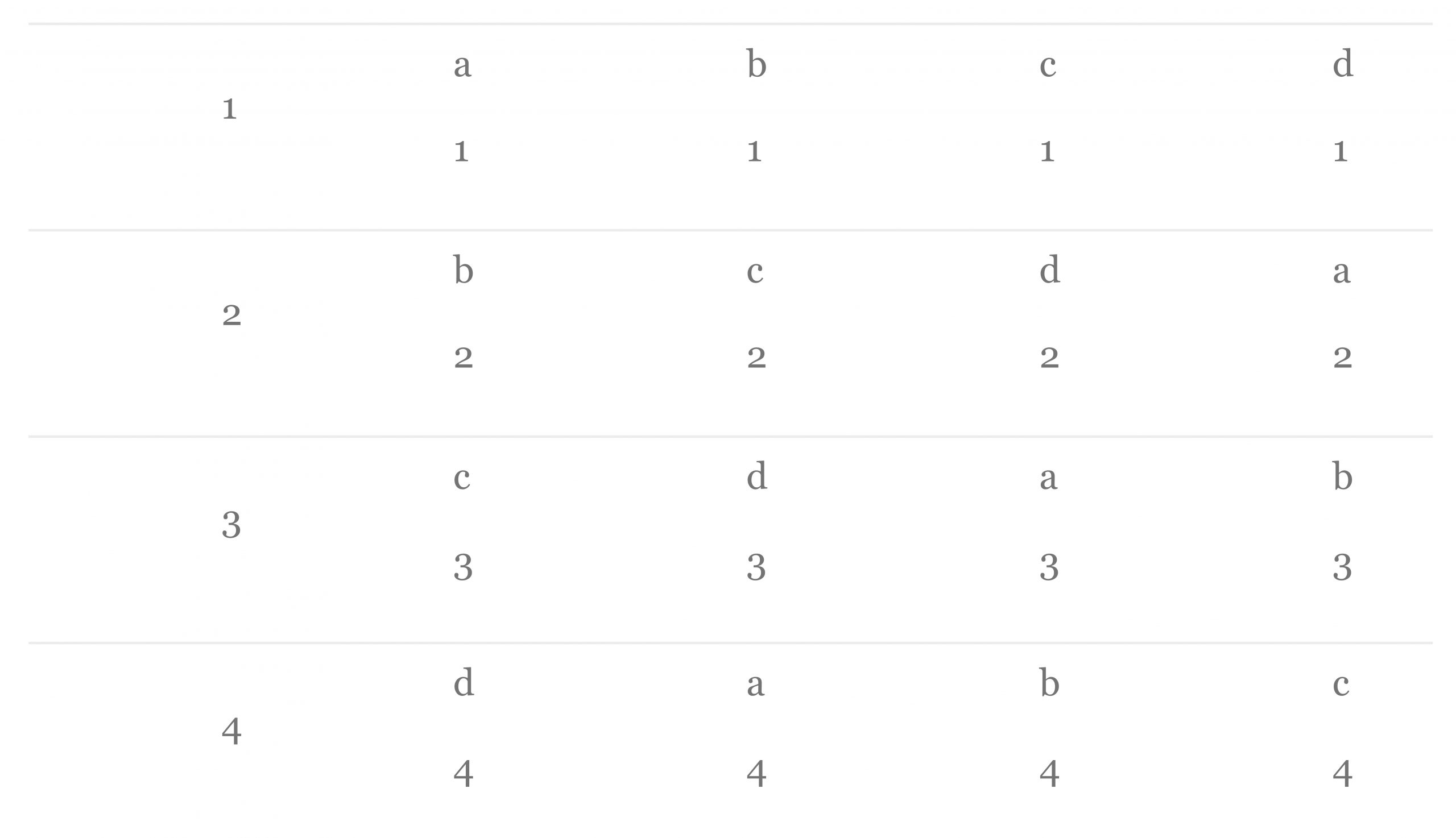
In theory, multiple versions of the same textual world can be via through the same entryway, since the opening line does not move.

Argument: The effect of using an algorithm abstracts the writer into a Joycean ‘Arranger’ role, hovering above the lines, their labour reduced to pressing a couple of buttons, which power the text through the snowy nothingness of a Word document, moving the poem frictionlessly on and on, as though through a virtual landscape, as though playing and re-playing a game whose landscape is reapproached from so many different angles that its enticing fogs never roll back finally or completely, and it can remain strange to the writer.
*
To fulfil the requirements of the algorithm, you simply need to decide on a number of sets. The only restriction on these sets is that each one should contain the same number of elements. At first, I thought this was quite easy for a poem written to fixed stanzas: since there was an equal number of lines in each stanza, I could simply take the first line of the first stanza, the second line of the second, and so on, and make sets out of them:
[SET v]
E1. All around were line-endings only.
E2. Gas-flame asterisks. Frozen water
E3. in commas. The broken punctuation
E4. of coal flung out over snow.
E5. Sacking lifted, flapped, dropped, fell,
E6. like a page not worth turning.
Two problems immediately arose.
First, the elements were not self-contained enough, meaning that, after the transformation — in which each element is shifted two spaces to the left — would cause a ‘surrealistic’ cut-and-paste effect whose successes would be due to happenstance.
Second, to shuffle the poem on this scale would ‘stretch’ the time-scheme of the poem without ‘exploding’ it, meaning that the various diegetic threads would appear tangled around themselves instead of hanging suspended and discrete.
In short, if the poem was left as it was, the algorithm would produce potentially infinite botchings of the same poem, rather than multiple different poems. As a consequence, I rewrote the poem as ten sets of eight-line units of prose, with each line containing eight words, and each set corresponding to the poem’s multiple temporal and spatial ‘levels’:
E.1: The fictive present: Iacopo recounts the circumstances under which he came to reconstruct his father’s unfinished poem.
E.2: Iacopo’s memories of his father and immediately after his father’s death.
E.3: Iacopo and his brother’s struggle in trying to reconstruct the poem.
E.4: Iacopo and his brother drinking and cursing their circumstances.
E.5: Iacopo abandons the poem in favour of garden repair.
E.6: The work of reconstruction narrated.
E.7: What Iacopo sees on a walk near the sea, once this work is done.
E.8: The dream Iacopo has of his father.
Rendered in ‘sets’, the poem begins to appear like this:
S.1:
E.1: ‘Boccaccio’s Life of Dante’. Laptop fan, polar roar.
E.2: The lintel framed a view of rubble, ozone.
E.3: I followed on behind through his ink forest.
E.4: Sakē poured into cups: a thickly glottal slopping.
E.5: I trod fallen leaves to broken herring-bones.
E.6: The leaves hung broken rigging on my boots.
E.7: The sea was ink washed from tight-scrawled pages.
E.8: Through the wind ash chunks raked past, dissolved.
S.2:
E.1: We couldn’t find the end of his poem.
E.2: Even now I can’t topple that half-charred door-frame.
E.3: No shape tapped my shoulder, set me right.
E.4: This stuff has no dregs, lad, I said.
E.5: I drew wire and light around his burned house.
E.6: Where could he be in all of this?
E.7: Wave sounds: whitened pages, scrunched drafts rinsed clean.
E.8: Woke to a white hole in the sky.
And so on. From this semi-tabular layout, it’s possible to produce multiple versions of the same imaginary landscape at the push of a button, shifting the elements of the text left or right, and thus freshening the material in a way that allows me to step back into the moment in which I wrote the ‘original’, itself lost a long time ago to the shuffle of draft and redraft, shift and reshift. But what is this space that I’m trying to get back to? What is the deeper remembering that I’m trying to trick myself into, via this machine for self-forgetting? More pertinently, perhaps, what is it I’m trying to escape by writing in this way?
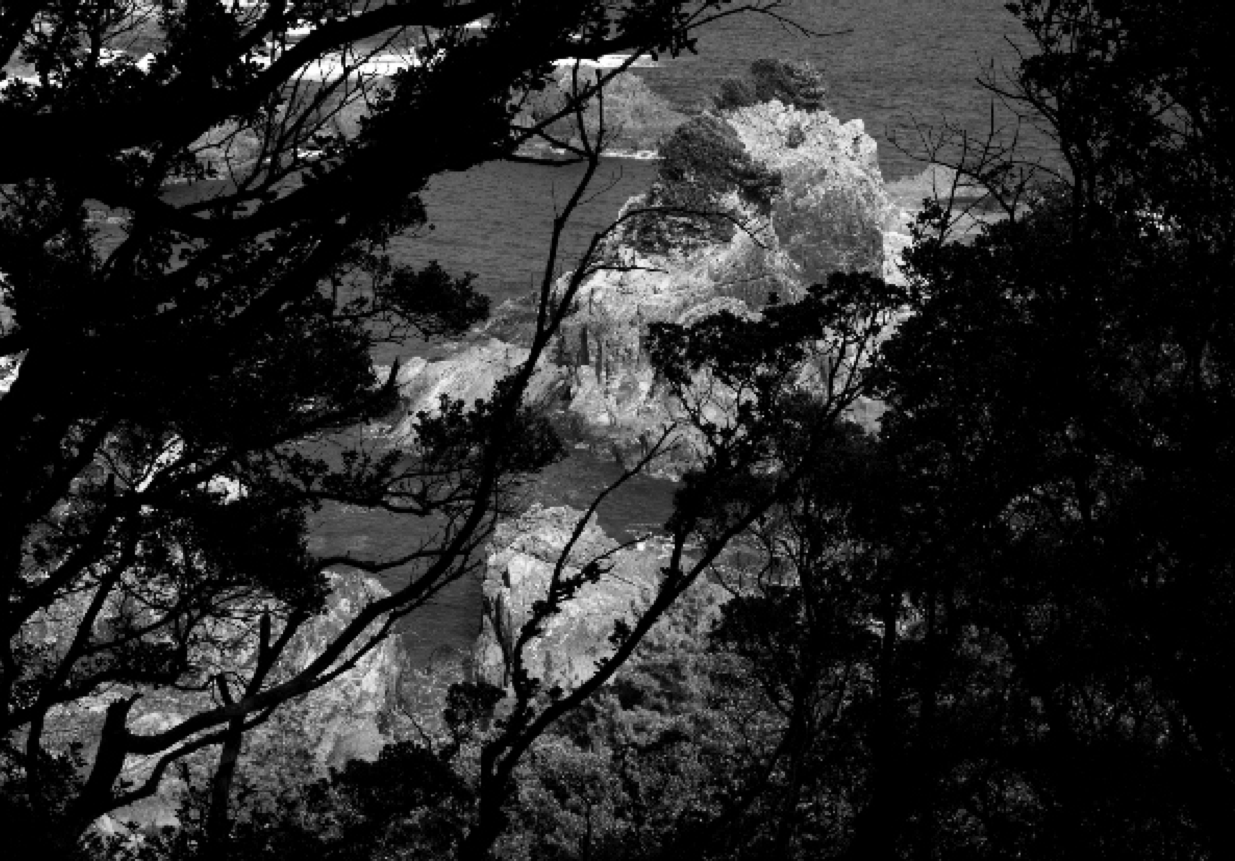
Shuffling the algorithm one day, listlessly, the day whitening with pollution, leaving dirty elvers across the glass, a picture rose in my head out of the polar roar of the laptop fan, out of the snowy blank of the page, the cursor narrow as a number ‘1’, or else like a lone coated walker caught in a sudden blizzard: a picture from a postcard, decorated with a cartoon of Kafka, that I saw on holidays with my father in Prague, just before my drinking ruined everything. His back was turned to the viewer, but it was definitely him. He had the collar of his coat turned up against the snow filtering down over him, through the cone of yellow lamplight overhead. That light caught the facades of old stone townhouses with swallowtailed eaves, but also illuminated the tiny cursive letters that teemed within each of the cobblestones under Kafka’s feet, not yet hidden by the snow.
*
Prague by night though the aeroplane window was an orange spill shaped like protozoa.
‘This is how we look to God,’ I slurred to my Da, who frowned in the seat next to mine.
‘Never heard of him,’ he deadpanned.
‘Do you want another sandwich?” I said to my Da, pointing at his plate. ‘I can arrange that. Anything you want. It’s all on me. That sweet prize money came in. Pringles, Kinder Bueno, a fucking Choc-Ice, if it’s on the flight trolley it’ll be in your gob soon as kiss hands, my friend.’
Benzos only kind of worked on me, I was discovering. My pulse was still a flutter. My lungs seemed to fill only half the way up.
‘Too late,’ my Da said, folding up his tray. ‘We’re landing.’
The plane dropped through clouds like fiery wool. My gut lurched.
‘The spirochetes in Prague are huge,” said my Da, leaning towards the view. ‘It’s in Kafka. Probably.’
Later that night, coming back from a bar, while my father was asleep, the sick that had bucketed up out of me was dark red, but fibrous, meaning that the red wasn’t blood but sugar and stomach lining, meaning no immediate need to worry. Behind my eyes played a looped film showing a house on fire while I lay in a ditch, just watching the rafters turn to cinders and fall through rapid fantails of sparks, and I leant my forehead on the cold rim of the bowl to cool those pictures away. My hangover had already begun: a heat in the skull like rotting fruit, a licked-battery taste on the tongue.The cold white ceramic became a video falling snow.
*
The following day I was too hungover to move, cited food poisoning in a way that neither of us believed, after which my father went to see the city, alone, then checked on me once he had returned. The TV blarted an endless static phrase at us from its white screen. Flicking the channels we found a quiet channel across which jerked thin bands of white.
‘You can kind of make out a footballer through the snow,’ said my Da.
‘Cut in slices, though.’
‘Do you want to go see the salt mines?’
He held up a picture on his phone. From the blue, mica-glinting cavern I was able to picture the lines of the miners’ hands whitening and whitening with the load of ingrained salt, coating their fingers until they were blue, unuseable mitts.
‘Nah, man,’ I said. ‘They seem very literal.’ My tongue was fat with benzos, my thoughts treacly.
On the other bed in my room, my father frowned and pawed the air.
‘Me book,’ he said.
Reaching for his bag, which he had dropped closer to my bed than the spare, a spike of pain threatened to open my head. While the TV continued to spit white noise at us, my father read. My brain seemed to make the light gritting noise of a hard drive zipping files back and forth, as I pictured my father’s eyes skating over the white gaps between words, like so many frozen lakes. The day greys, I thought. Then, This grey daze. Then, My grade A’s. After a while there were only analogies and riffs with no memory of their source, the static, and the sound of my father’s breath slowing as he dozed.
*
For the rest of the afternoon, I shifted the elements left, right, left again, trying to break the poem open, in the hope that I’d see something in the gaps forced between words. Around evening, when the pollution whiteness had started to leave the air, with a darkness surging in whose bluish tint reminded me of diluted ink, my partner sent me a message to say that she’d be home late from the hospital, and that she hadn’t been able to stop for lunch. She’s easy to cook for: what with the tae kwon do and all, recipes have become a culinary version of freedom through restriction. My kitchen knife gritted through bunches of cilantro, scattered white chili seeds, left red dribbles of tomato-juice petering over the white chopping board. The pots bubbled and coated the windows with steam, and so I opened the terrace door to clear the condensation, at which point an oily tang of charcoal caught me full in the throat from the quesadilla stand on the corner, and that taste of smoke through blue air stunned me all the way back to sitting on a bus somewhere outside Munich, driving through a frozen wood, the fog coiling, the darkness between the trees a deep blue. I’m sixteen. My headphones leak a slow bassline whose pulmonary thrum seems timed to the pulse of the engine. There’s no desire in me ever to arrive. To be on this bus forever, the suspension swaying me with every bend in the road, so absorbed and rapt in the view that if I were to picture myself all’s I’d see would be a load of kelp tossing gently under a sea somewhere, my consciousness wavering on that tipping-point between a loss of subjectivity and a total bodily presence. It’s a pre-erotic sensation, really, that oceanic feeling Freud theorised in babies, the one Julia Kristeva says it kills us all never to be able to go back to. But I don’t know any of that yet. The engine pulses under me like a whale’s heartbeat. The tyres leave the snow grooved. The lines are smooth as the tracks in a vinyl record. The idea that I might deepen this moment somehow, that I might spatialise it, to revisit later, this puts a hook or a pang under my ribs, because I know it’s passing, but I want to make the instant permanent somehow, and so I take notes, because what I want isn’t so much to be here forever as to live here twice, somehow. Honestly, the poem doesn’t even matter — I just want to go back. As far as then, no further, that’s all. It would all turn out differently that way. Better, even. I promise.
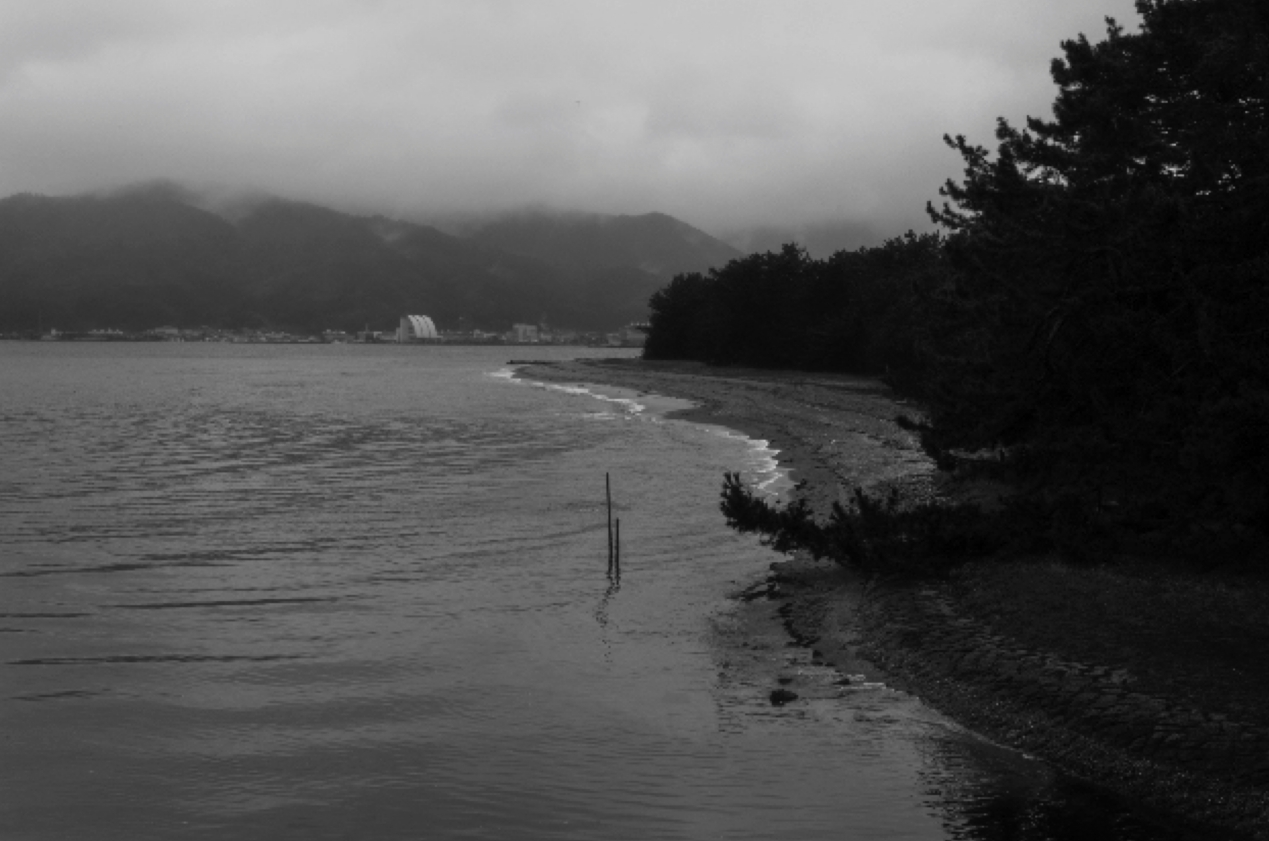
Found Poem – First Version
II. FIRST VERSION This version of the poem happened because I am unprofessional. By April 2015 I had a pile of empty, thirteen-quid Moleskines given to me for ten successive birthdays. As such, I never bought notebooks, and grabbed one at random from the pile...
Found Poem – Second Version
Roland Barthes: ‘After an extrapleural pneumothorax operation, the removed section of rib was returned to me by the hospital. Often I have toyed with flinging the rib–chop from my balcony, as though romantically scattering my own ashes into the river.
